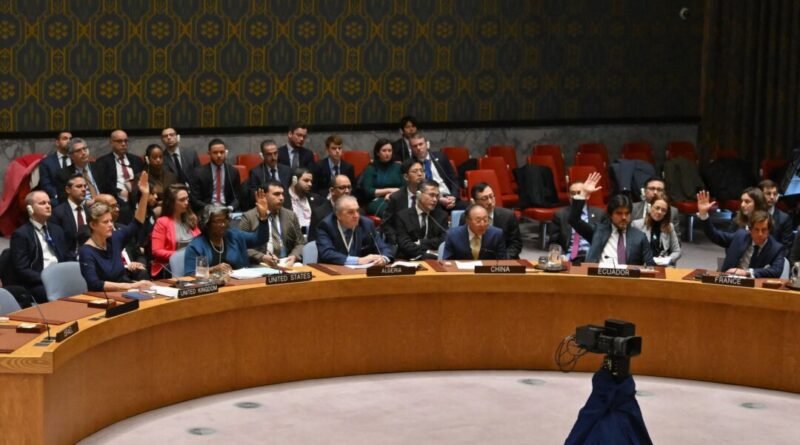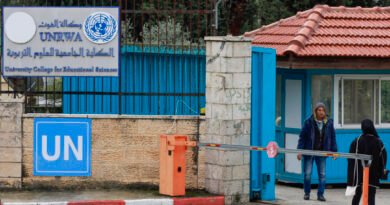China and Russia use veto power to block US-led Gaza resolution calling for ceasefire ‘urgent’
The U.S.-led resolution for a ceasefire in the Israel-Hamas war in the Gaza Strip was vetoed by Chinese and Russian delegations at the United Nations on Friday.
The resolution was presented to the 15-member council and received support from 11 members, while China, Russia, and Algeria opposed it, with Guyana abstaining.
Both China and Russia, as permanent members of the Security Council, have veto power over resolutions. Algeria was the third country to oppose the resolution.
Russia and China had previously supported ceasefire proposals, but vetoed this latest resolution. Russian Ambassador Nebenzia criticized the resolution for not demanding a ceasefire explicitly.
The U.S. resolution called for an immediate ceasefire, compliance with international law, protection of humanitarian workers, condemnation of acts of terrorism, and demanded access to hostages held by Hamas.
As separate ceasefire negotiations continue, the U.S. resolution aimed to pressure Hamas to accept a deal on the table.
Russian Ambassador Nebenzia accused the U.S. of misleading the international community about the ceasefire resolution’s effectiveness and demanded a more explicit call for a ceasefire.
What Would the US Resolution Have Done?
The U.S. resolution aimed to enforce an immediate and sustained ceasefire, ensure compliance with international law and protect humanitarian workers, expand humanitarian aid in Gaza, and condemn acts of terrorism, including Hamas-led attacks and use of civilian buildings for military purposes.
The resolution also called for Hamas to allow access to remaining hostages in Gaza.
The U.S.-led resolution aligns with ongoing ceasefire negotiations and aims to pressure Hamas to accept the deal on the table.
NTD News sought additional details from the U.S. State Department but received no response as of press time.
Algerian Ambassador Bendjama criticized the U.S. for vetoing its own ceasefire proposal in February, suggesting it could have saved innocent lives in Gaza.
Guyanese Ambassador Rodrigues-Birkett abstained from voting, citing the resolution’s lack of an immediate ceasefire demand.
China Pushes Alternative Ceasefire Framework
After the vote, the U.S. Ambassador accused China and Russia of opposing the resolution for political reasons and failing to condemn Hamas for attacks and allegations of sexual violence.
Chinese Ambassador Zhang Jun stated that China supports a different resolution that explicitly calls for a ceasefire.
The U.S. Ambassador acknowledged the alternative resolution but expressed concerns about its impact on ongoing diplomacy and potential for Hamas to reject the ceasefire deal.
“If that alternative resolution comes up for a vote and does not support diplomacy on the ground, we may once again find the Council deadlocked,” said the U.S. Ambassador.
The Associated Press contributed to this article.






